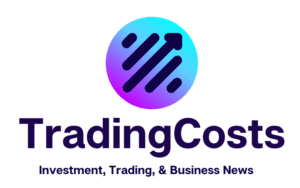With the rise of vaccinations and the slowdown on the spread of the COVID-19 virus, people are able to get back to some semblance of a normal life. For the past year, we were all confined to our homes, which also became the workplace for many people. In order to prevent the virus from spreading, it was asked that people not gather in large groups. This created the aforementioned home workplaces, and many folks had to adjust to this new “normal.” Individuals literally found themselves getting up from the bed, heading to a nearby desk, and logging in for the day. Gone were the daily office interactions with co-workers. No longer were there any office get-togethers being held. For their own safety, many people were relegated to working from their humble abode.
One of the missing parts of being a virtual-only business was the lessened interaction with Human Resources or HR. This department deals with the hiring, administration, and training of personnel. Though these positions still existed during COVID-19, there was less personal interaction happening with the employees of a particular business. This is steadily changing. More jobs are becoming available with the influx of vaccines, and offices are opening back up with safety precautions. HR is fast becoming another important component of the office lifestyle. One part of HR which makes it thrive is the Human Resources Information System (HRIS). HRIS is a form of human resources software that combines a number of systems and processes. This can ensure the easy management of human resources, business processes, and data. We’ll focus on a bit of helpful information about the HRIS industry.
It manages employee information.

One of the things which HRIS excels at is being able to manage the information of many employees within a company. Such helpful information can be used to track many important aspects of an employee at their place of business. For instance, let’s say that a company utilizes direct deposit for paying their employees. What they’ll need to gather from their employee might include their bank account information so that the funds can be made readily available. This form of information management ensures that, on payday, an employee can visit an ATM, enter their personal identification number, and pull their funds out.
In addition to this, when an HRIS manages money in such a successful way, the employee will also be able to use a debit card to make purchases with their recently deposited funds. Being able to keep track of such employee information as bank account information, addresses, medical information, emergency contacts, applications, and a host of other information is a great way that HRIS helps to manage employee information.
It keeps track of formal disciplinary actions.
When you run a business, not everyone will perform up to par with the standards of your company. In cases like this, a well-functioning HRIS can be utilized to keep track of the mishaps which an employee has committed and what steps were taken to rectify the situation. This helpful information can be used to provide a case for termination if this unfortunately is what has to happen.
It’s able to follow training.

Running in tandem with the formal disciplinary actions is how HRIS helps to keep track of training employees. You need to know where your workers are in being able to perform certain actions. When you compile how many times a particular training course has been taken by an employee, this lets you know where they are at in terms of keeping up with new standards and performing their jobs well. Helpful information like this can help you to see where a worker is at in their career goals.











